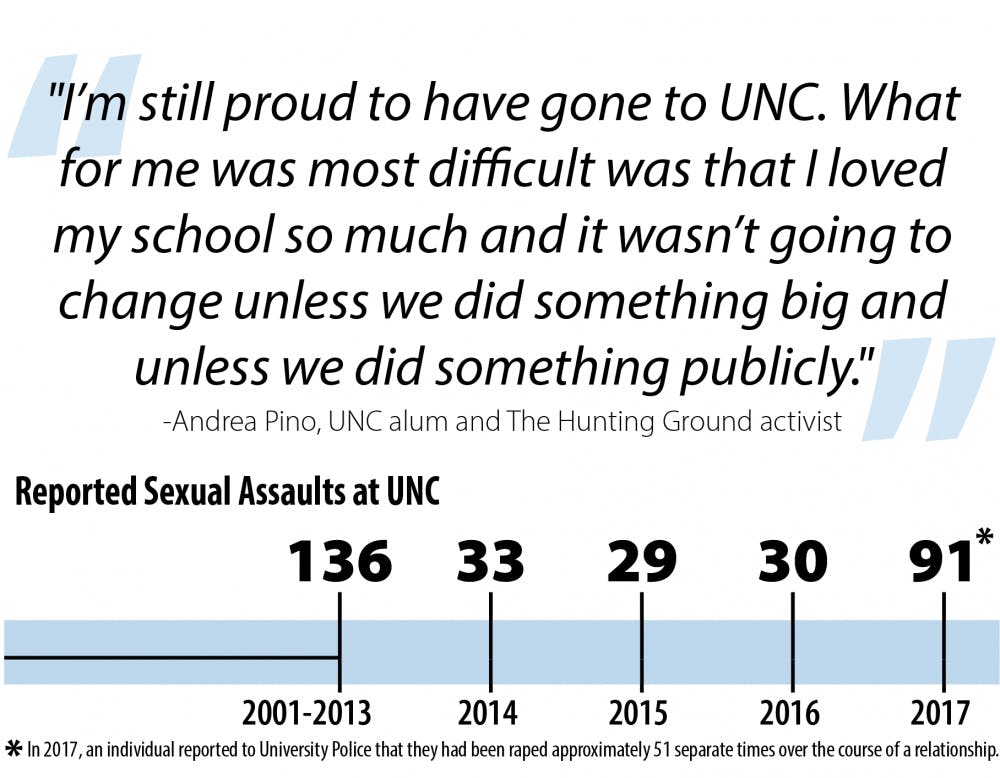Wednesday marks four years since "The Hunting Ground" was released, a documentary that shed light on how UNC and universities across the nation handled specific sexual assault cases, while underscoring the broader difficulties in enforcing Title IX regulations.
The film examined how many universities, including UNC, inappropriately and inadequately reported sexual assault crimes in order to avoid public records showing the extent of the problem at each university. "The Hunting Ground" alleged many of the colleges featured in the film often discouraged students who had been sexually assaulted from going to the police and gave minimal punishments to student offenders, who are involved in several cases.
“While we are unable to comment on specific claims, Carolina has worked steadfastly over the past two years to increase awareness about resources and reporting options, so students know where to receive help when they need it and how to report violations,” said Felicia Washington, vice chancellor for Workforce Strategy, Equity, and Engagement, in March 2015.
“We’ve implemented mandatory prevention and awareness training for all of our students, faculty, and staff, as well as bystander intervention trainings. Our comprehensively revised policy that covers sexual violence now more clearly defines consent and outlines new investigation and hearing procedures. While much has been accomplished, we will continue to evaluate our progress and move forward.”
"The Hunting Ground" focused on UNC activists and graduates Andrea Pino and Annie Clark, who filed a Title IX complaint against the University in 2013. In its aftermath, UNC was found in violation of the Title IX anti-discrimination law after a five-year federal investigation and has since made several changes in how the University handles sexual assault on campus.
Pino has dedicated her 20s to this work. Now the digital strategy and communications manager at the National Center for Lesbian Rights, Pino co-authored “We Believe You: Survivors of Campus Sexual Assault Speak Out” with Clark and is looking at applying to Ph.D. programs.
As a UNC student studying political science, Pino anonymously reported her sexual assault case. She became an activist as a resident adviser, when many residents came forward to her with their experiences of sexual assaults. Pino said no one she knew at the time felt they had received any type of justice after reporting their sexual assaults to University administration.
"I loved being an RA,” Pino said. “I loved working for the University. I was very proud to go to UNC. I’m still proud to have gone to UNC. What for me was most difficult, was that I loved my school so much and it wasn’t going to change unless we did something big and unless we did something publicly."
"The Hunting Ground" was the "something public" that Pino became involved with when directors and producers of the film came to screen "The Invisible War" at UNC and heard about Pino and Clark’s work on campus.



